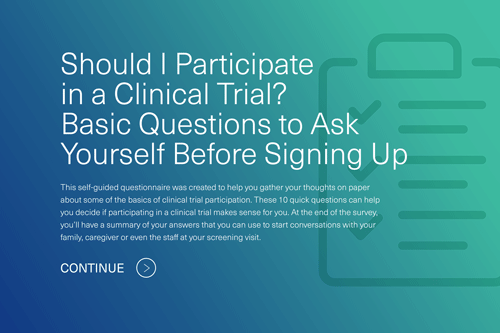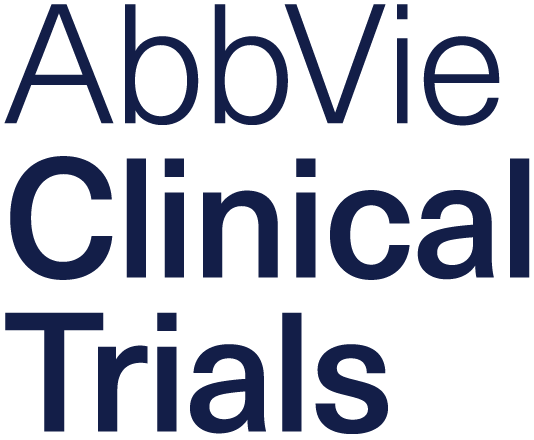
Are You Thinking of Joining a Clinical Trial?
AbbVie Clinical Trials is a resource that addresses questions and concerns about clinical trials. This website also provides comprehensive information about certain medical conditions – their causes, symptoms and treatment options.

WATCH VIDEO
Clinical Trials Explained
Learn more about what clinical trials are, how to find a clinical trial that's a good fit for you, and what to expect before, during, and after participating in a clinical trial.

Should I Participate in a Clinical Trial? Basic Questions to Ask Yourself Before Signing Up
Answer 10 quick questions to help decide if participating in a clinical trial makes sense for you.





